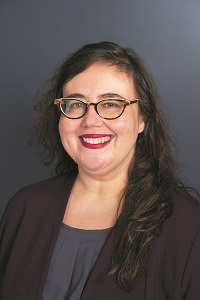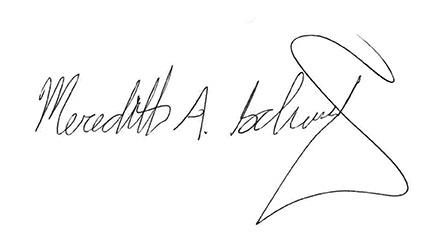Don't Settle for Normal | Editorial
It is important to take a moment, even in the midst of crisis, to honor this year’s Movers & Shakers. It is a waypost, a signifier of normalcy in a year from which so many landmarks are missing. But it’s also a reminder that we still need people moving us forward and shaking up our thinking—perhaps never more so than when we feel shaken by forces outside our control.
Keep moving. Keep shaking.
 It’s a strange time to be celebrating LJ’s newest crop of Movers & Shakers—ironically, moved to the May issue to be closer to a planned party at the now-canceled American Library Association annual conference. It’s a strange time to be celebrating anything. Not only are in-person parties (and conferences) now dangerous, it seems out of place when so many are dying or at risk. The work itself, for which this year’s Movers are honored, can seem almost quaint amid closed buildings and social distance. Over and over, as we edited the profiles and looked at the many projects being highlighted, we asked the same questions: “How is this impacted by COVID-19? Is it postponed? Has it gone virtual? Is it still happening at all?”
It’s a strange time to be celebrating LJ’s newest crop of Movers & Shakers—ironically, moved to the May issue to be closer to a planned party at the now-canceled American Library Association annual conference. It’s a strange time to be celebrating anything. Not only are in-person parties (and conferences) now dangerous, it seems out of place when so many are dying or at risk. The work itself, for which this year’s Movers are honored, can seem almost quaint amid closed buildings and social distance. Over and over, as we edited the profiles and looked at the many projects being highlighted, we asked the same questions: “How is this impacted by COVID-19? Is it postponed? Has it gone virtual? Is it still happening at all?”
The answer, by and large, was yes to the last. In a new form, on a new timetable, but the groundbreaking work that made us choose these people as library leaders in the before-time of hard pants and handshakes is still going strong in this new socially distanced era. And new creative solutions are taking shape in response to great need—more than one Mover was hard to reach for their interview because they were so slammed with the crucial work of shutting down their physical locations and transforming to safer service.
In our cover story, “Programming Through a Pandemic,” Erica Freudenberger highlights such rapid pivots to remote service in public libraries across the country. These offerings are, of course, only the tip of the iceberg. Libraries busy reinventing themselves don’t always have time to stop and tell us about it. But we hope their examples will inspire adaptation and innovation of your own—and that, when you can, you will share those with us so we can share them with the field as a whole, through a new online extension of our Programs That Pop column focused specifically on distance programs.
It is important to take a moment, even in the midst of crisis, to honor this year’s Movers & Shakers. It is a waypost, a signifier of normalcy in a year from which so many landmarks are missing. But it’s also a reminder that we still need people moving us forward and shaking up our thinking—perhaps never more so than when we feel shaken by forces outside our control.
Comic Hari Kondabolu often tweets about current events, “This is not normal. (And normal wasn’t so great either.)” We all know this COVID moment is not normal. It can be hard, in the grip of nostalgia for simple pleasures such as meeting with our colleagues or greeting patrons at the door, to remember that second part. But it is vital. Normal wasn’t so great for our unhoused patrons. It wasn’t so great for the people who had to turn to the library for help navigating the health-care insurance exchanges, unemployment, or Social Security because the rest of the safety net had worn thin and too many agencies assumed a digital access and knowledge that is far from universal. Normal wasn’t so great for the kids who only get a square meal at school or the library, or the ones who can’t talk to their parents in prison unless a public library has stepped up with something like Telestory, because access to the phone—and the books and the soap—is being run as a for-profit business.
These may not sound like library issues. But they are, and that’s been driven home by the pressures many systems faced not to close libraries completely in spite of the danger to patrons and staff. If they are library issues when it comes to stepping into the gap, then they’re library issues when it comes to closing that gap for good.
Public library leaders have a place at the table in practically every city and county in America. They have unique insight into the broad spectrum of needs across the whole community, and a unique mandate to meet those needs. It’s clear that it will take extraordinary measures to get this country through the pandemic and back on its feet afterward, and that libraries will need to be an integral part of that. What’s less clear is what will happen next. If we give in to the desire to get back to normal, we are in grave danger of re-creating the conditions that led to so much suffering, and squandering the opportunity to build a better new normal for all. We must keep moving forward, and look to the latest crop of Movers & Shakers to inspire by example.

RELATED
ALREADY A SUBSCRIBER? LOG IN
We are currently offering this content for free. Sign up now to activate your personal profile, where you can save articles for future viewing









Add Comment :-
Comment Policy:
Comment should not be empty !!!